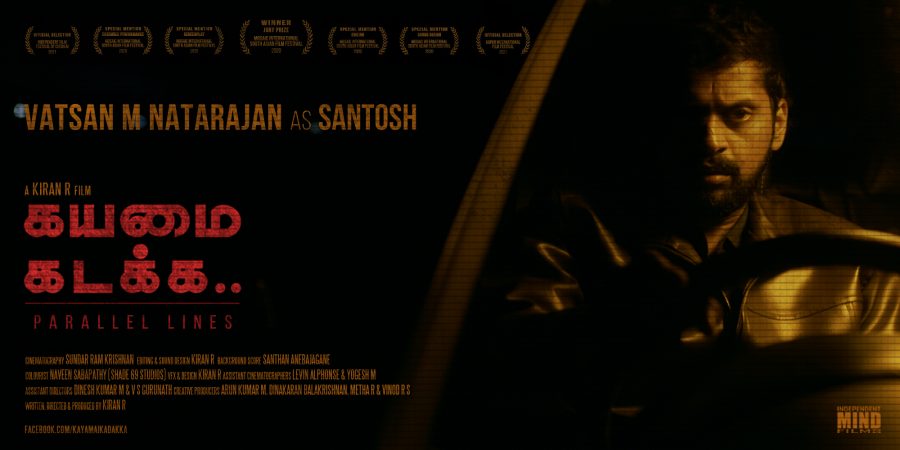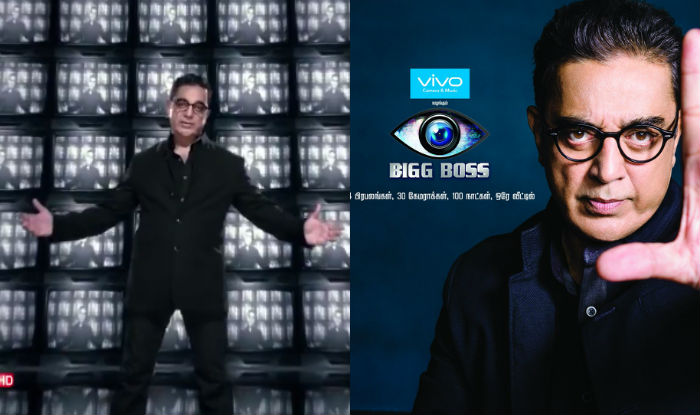Kayamai Kadakka (Parallel Lines), the Tamil independent feature film written and directed by filmmaker Kiran R, will be screened at the New York Indian Film Festival (NYIFF) from Friday till June 13.
The 104-minute-long film, which stars Vatsan M Natarajan and Masanth Natarajan in the lead roles, revolves around two men who share the same name and opinion towards injustice towards women and are connected through social media. The film follows the events that happen in their lives as they meet for the first time.
Speaking to Silverscreen India, Kiran said, “It was a backward process, where I had set the date of shooting for the feature film, roped in Vatsan for one of the lead roles and my cinematographer Sundar, worked around the elements in the film and finally worked on the script that went up to 92 pages.”
“I wanted to do my first film and had four fully developed feature stories that I was trying to pitch to producers and actors. After a point, when the meetings didn’t pan out, around July 2019, I went broke. So, I returned to my home in Bangalore from Chennai. That is when I decided that I wanted something to look forward to. I decided to make an independent film and then spoke to my friend and lead actor of the film, Vatsan. Taking his schedule into consideration, I planned to shoot the film in September 2019. All this while, I was absolutely blank about what the film would be,” he said.
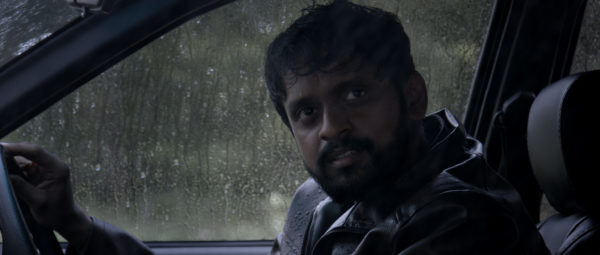
Kiran said he began toying with the story ideas, keeping the time constraint and budget limitations in mind, after Vatsan signed the project.
“I wanted to challenge myself, given that the film will be an indie, low-budget film, but it should not give the feel of it. Usually, if you see low-budget films, they often take place in one or two locations, with a few characters. But I wanted my film to move across locations. So, this film has about 10-12 locations, which is a bit of a rarity in low-budget films. Keeping that in mind, I wanted to do a road film, it would also be visually appealing. Later came the character sketches, their conflicts, and other visuals. Then came the story and theme,” explained Kiran.
The filmmaker said that it took a couple of days for him to “see the film in his head”. He said he finished writing the script in two weeks.
“Initially when I was thinking of a road film, I was imagining it to be from Chennai to north India, but at the same time, I wanted the film along to be an action thriller. To keep the tension alive, I can’t have a road film happening over a long period and hence I reduced the time span of the script. Now, the film takes place over two days.”
Kayamai Kadakka was shot in October 2019 in Kovaipudur, near Coimbatore in Tamil Nadu. “I worked as an editor in one of Sundar’s films. I went to his place in Kovaipudur and while editing his film, I observed the surroundings, its exteriors. So, it stayed in my subconscious and when I wrote Parallel Lines, these places came to my memory,” said Kiran.
Speaking about the film’s casting, Kiran said, “I know Vatsan for some time and had met him during a film festival in Chennai. I had made a short film with him earlier and since then we had been discussing projects. Masanth had acted in one of the films that I had edited. I liked his performance. While a few of my friends felt Masanth did not suit the character he played, I felt I could see something that others could not see. That has worked to a large extent and so far, the audience seems to enjoy the casting.”
Asked about the absence of a female lead in a film that talks about injustice towards women, Kiran said, “This film does not work with a female lead. You will find the female characters present throughout, but you don’t see them physically anywhere. Moreover, it is a male issue when the women do not get justice. It is a crime that is committed by men predominantly and how they see it.”
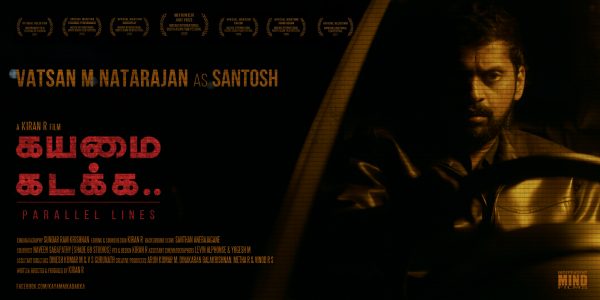
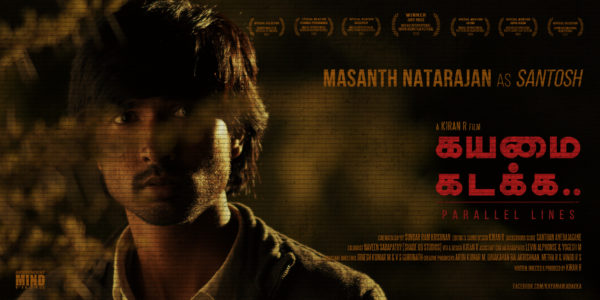
The film was shot in a guerrilla filmmaking method with just five crew members apart from the cast. The filmmaker said that it was a blend of planned and spontaneous process.
“By definition, guerrilla filmmaking means taking a camera and shooting anywhere you want. We have done that and most of it was shot in live locations. On the other hand, we also did a bit of traditional filmmaking where I set a timeline. Since a cyclone disrupted the shoot and Vatsan had other commitments, we had to have clarity in shooting and see what we shot,” he said.
Talking about the film’s release, Kiran said that Kayamai Kadakka was made for theatres, but its release was delayed due to the Covid-19 pandemic.
“We are trying to talk to OTT platforms too for the release. Only A-lister films have been releasing on OTTs, but there are more than 150 small films that release annually. Even films like Dhuruvangal Pathinaaru were released on OTT platforms when it was all about theatrical release. There is word of mouth and people go to watch it. Now, that opportunity is gone. Even if the films are picked up by festivals, it still does not translate into a business for it to release on OTTs. Earlier, people were willing to give a chance to watch in theatres, but that window is shut. I also feel that the pandemic has changed the perception of film watching,” he said.
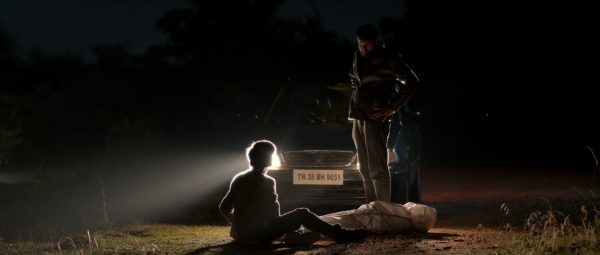
Kiran, who has previously assisted veteran filmmaker Mani Ratnam in films like Kaatru Veliyidai, said he learnt the most from the celebrated filmmaker.
“I think everyone who gets to work with him learns something or the other. But when you’re employed to work with him as an AD, you think you’re not learning much, just working hard on the film because working as an AD under Mani sir is a demanding job. Only later, after exiting [Madras] Talkies [company owned by Mani Ratnam], I understood that the learning has been very much on a subconscious level. I started to format screenplays like he would and taking very conscious decisions while staging a scene and blocking actors,” said Kiran.
Recommended
While the team of Parallel Lines won’t be present during the film’s screening at NYIFF, Kiran said, “Instead of cancelling top festivals, they are doing it virtually. The advantage is that instead of letting go of the opportunity, they are encouraging filmmakers. Unlike a traditional screening where the audience is limited to a certain capacity, a virtual screening gets far more reach and runs for 10 full days. So, people who come to know about films later can also watch it.”
The film, which premiered at Canada’s Mosaic International South Asian Film Festival in December 2020, won the Jury Prize and special mention for performance, screenplay, editing, and sound design.
The film’s technical crew consists of cinematography by Sundar Ram Krishnan and the background score by Santhan Anebajagane. Kiran was assisted by Dinesh Kumar M and VS Gurunath. Apart from writing and direction, Kiran has handled the production, editing, sound design, and subtitles.
